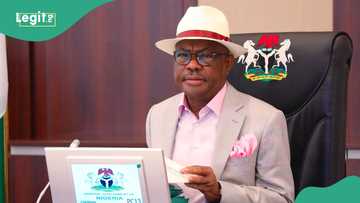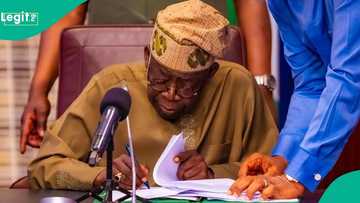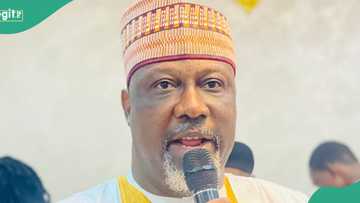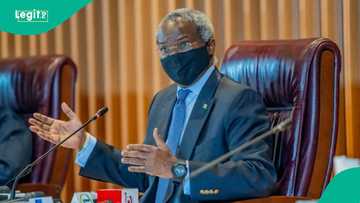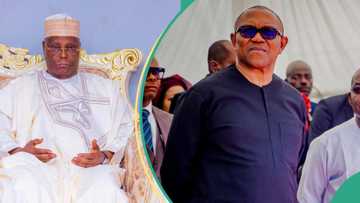2027 Election: Aderibigbe Warns Anti-Tinubu Coalition Against Growing Into “Version 2 of APC”
- Adekunle Razaq Aderibigbe is a professional accountant, business advisor, policy and public affairs analyst
- In this interview with Legit.ng, Aderibigbe speaks on electoral reforms, Nigeria’s economic challenges, and the anti-President Bola Tinubu alliance
- Aderibigbe, a candidate of the NNPP in Lagos who contested for the seat of Ikorodu 1 constituency of the state house of assembly, discussed tax matters
Legit.ng journalist Ridwan Adeola Yusuf has over 9 years of experience covering public affairs and governance in Nigeria.
Ikorodu, Lagos state - Adekunle Razaq Aderibigbe, a New Nigeria People's Party (NNPP) Lagos state house of assembly candidate in the 2023 election, has said there are challenges associated with the African Democratic Congress (ADC) coalition.
Legit.ng reports that discussions have been held regarding an alliance among prominent figures, including Nasir El-Rufai, Peter Obi, and Atiku Abubakar, to challenge President Bola Tinubu's re-election in 2027.
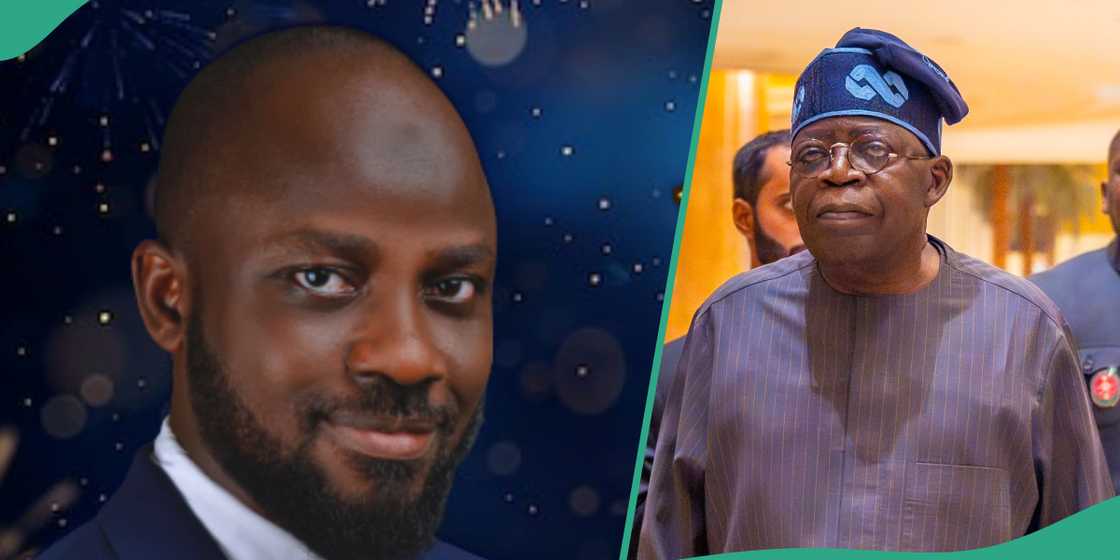
Source: Twitter
Sharing his take on the alliance, and under what conditions he would consider joining, Aderibigbe told Legit.ng that the coalition's policy framework must be beyond an anti-Tinubu project, "so it does not grow into version II of APC."
He said:
"Presently, I see the political system in Nigeria going through a transformational change, where all the active politicians are aligning with the All Progressives Congress (APC) for their survival and relevance towards the 2027 general elections, while the opposition is grouping as a coalition to have a formidable alliance as the unified anti-incumbency front that will check the APC.
"Meanwhile, there are challenges associated with this coalition with respect to ideological differences, merger structures, party candidature challenge, and vote base alienation like the Obidient movement.
"On the conditions I would be considering if joining the coalition, first and foremost, is the policy framework showing it is beyond the anti-Tinubu project, so it does not grow into version 2 of APC."
The NNPP chieftain explained that the overall concept of the ADC coalition "should be very clear about plans for economic, security and institutional reforms.
He said:
"There should be a transparent system for candidate selection based on a meritocratic process and not a smoke-filled room. There should also be a strong policy, process, and system to promote ethical governance.
"Lastly, the alliance must prove the statistical significance of its winning chances, making the risk of joining worthwhile."
Election credibility is the most acceptable test for democracy, and some analysts have said the 2027 polls will therefore be more than a date; it will be a test of whether Nigeria still believes in itself.
Aderibigbe suggested specific electoral reforms to be urgently undertaken to ensure truly free and fair elections in 2027, and how the Independent National Electoral Commission (INEC) can implement these reforms.
He reasoned:
"I will want to commend President Bola Tinubu for the appointment of the new INEC chairman, Professor Joash Amupitan, who is adorned with a credible profile as he has a great hurdle to establish confidence and trust that would make Nigerians participate accordingly.
"As for the electoral reforms, it is high time we legalised and operationalised the Electoral Offences Commission Bill as recommended in the 2008 Uwais Report. Of course, there should be full electronic transmission of results that is legalised and discretionary from all polling units with a real-time view by the public. Besides, INEC needs to be granted full autonomy to sustain transparency while also capping and enforcing accountability of campaign funds, as well as public information of sponsors or donors.
"Lastly, the ballot papers should show candidates’ names and pictures rather than the political party logo. After the election, we don’t go to the public offices looking for political parties, but rather persons or individuals elected swear an oath to be just, dutiful and accountable with public trust."
Nigeria's main economic challenges include high inflation, rising public debt, and inadequate infrastructure, particularly power supply. Other issues include high unemployment, poverty, corruption, a lack of economic diversification away from oil, and an inconsistent policy environment. These problems lead to a high cost of living, food insecurity, and difficulty for businesses to operate and grow.
Aderibigbe speaks on how Nigeria's president can effectively address the challenges.
His words:
"There are stats and metrics currently showing that President Tinubu’s administration has slightly stabilised or recovered slightly against its valleyed depth as an achievement, considering where we journeyed from in May 2023 to date.
"As the president in the short-term, I think he should be more concerned about provision of goods and services to drive beneficial economic growth for Nigerians, especially the masses like provision of sustainable cheap transportation schemes, sustained support for farming and agriculture for the entire lifecycle, not just funding or credit schemes to the farmers but ensuring that support cut across from planning to output to solve food crisis. While in the long term, the president should implement We-Produce-What-We-Eat and Made-In-Nigeria first, as this would contribute immensely to sustainable development goals (SDGs) addressing poverty, hunger, employment, well-being, water, etc.
"We cannot over-emphasise how important power supply or energy is required. When power supply improves, it will reduce the cost of production and the cost of living, while driving productivity and revenue for the government. The government just need to focus on a few which will attract genuine support and collaboration from foreign investors and the international system."
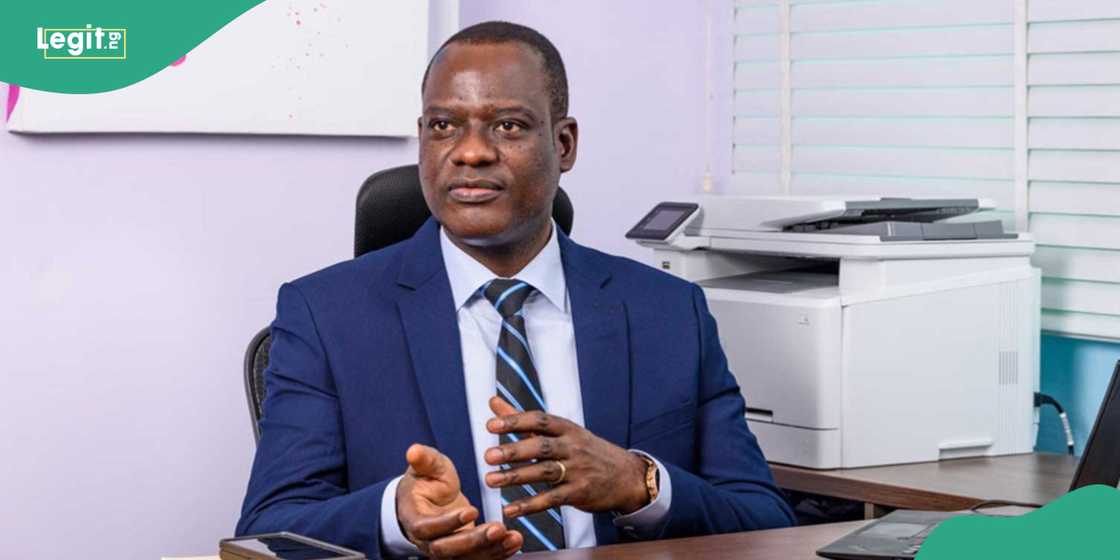
Source: Twitter
On the recent illustration by Taiwo Oyedele, chairman of the presidential committee on fiscal policy and tax reforms, on the proposed expansion of Nigeria’s tax net to include informal sectors such as “runs girls” and “agberos,” Aderibigbe posits that it is "becoming increasingly clear" that the underlying intent of the reform is primarily geared toward aggressive revenue generation rather than a holistic fiscal reengineering.
He said:
"While the reform initiative ostensibly seeks to broaden the tax base and formalise segments of the informal economy, the approach raises moral, socio-economic, and strategic questions. By emphasising “who earns” rather than “how the income is earned,” the policy signals a pragmatic yet controversial stance as one that justifies the end, that is, revenue mobilisation without due consideration for the means, socioeconomic fairness and legitimacy of income sources.
"It is, however, commendable that the committee proposed a tax exemption for individuals earning below N800,000 annually, acknowledging the dire economic realities faced by low-income Nigerians. Nonetheless, this threshold contradicts Mr. Oyedele’s earlier assertion that “no country can become rich by taxing poverty.”
The policy expert stated that in the context of Nigeria’s current economic classification by the World Bank as a low-middle-income country (LMIC) and using the global poverty benchmark of $4.12 per day, any Nigerian earning less than N2.2 million per annum is effectively living below the poverty line. Therefore, setting the tax-free threshold at N800,000 falls short of protecting the economically vulnerable and risks deepening hardship among the working poor.
He concluded:
"To achieve equity and sustainability, the committee should consider raising the tax-free threshold to N2.2 million annually, ensuring that taxation aligns not only with fiscal prudence but also with social justice and economic inclusivity.
"Tax reforms should aim to broaden prosperity, not merely broaden the net."
NNPP's Aderibigbe lists areas for improvement
Earlier, Legit.ng reported that Aderibigbe identified areas where the leadership of Nigeria under the Tinubu administration can be improved.
Aderibigbe explained how President Tinubu's policies might better align with the needs of everyday Nigerians.
Source: Legit.ng


